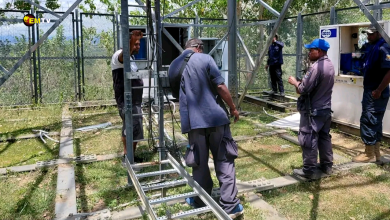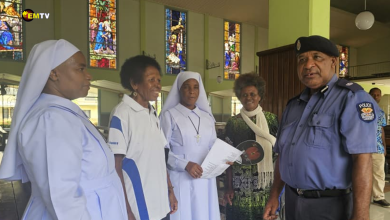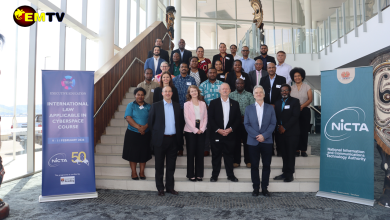2017 Election Public Views | First Assistance Secretary Strategic Policy Division
EMTV Online interviewed several people across the country and have their views on the 2017 Papua New Guinea elections, especially PNG Electoral Commission’s (EC) polling preparations.
When asked what is his views are of the 2017 Elections, First Assistant Secretary of the Strategic Policy Division, Mr Peter Whaieng said preparations were generally good as all stakeholders were involved in the planning processes.
However, this is what he has to say, “There are several observations I made and had in mind that I view that EC overlooked or had to deal with immediately in preparations for future elections. However, I will focus on only two strategically important issues that EC needs to address.”
“These are, 1. Lessons Learnt; 2 Legislative Frameworks; and .” Whaieng told EMTV Online.
Lessons Learnt.
“What were some of the lessons EC learnt during the last previous let say five or three last elections?” Whaieng asked.
According to Mr Whaieng, an evaluation of these elections will provide the EC with strategies and ways to improve on.
“I believe EC had done that, if it had done it then the report should be made available to public for critics.”
Election is a public process and each and every one has the right to know and provide critics for improvements,” Whaieng said.
As far as I am concerned EC provide report to Government only for accountability for usage of public funds.
Whaieng believes there are other independent and international observers who have also provided reports on the preparations and conduct of the elections which he questions as to whether or not the EC has taken on-board their recommendation to improve PNG’s electoral and election processes that includes planning of 2017 elections.
“I therefore, strongly recommend that after this 2017 election, EC should collate all reports from all stakeholders and also use its internal apparatus to conduct an evaluation of the conduct of the elections and make recommendations for public critics. That will be a better way for EC to improve its planning and conduct of any future elections.” Whaieng said.
Legislative Framework
According to the First Assistance Secretary, the EC Act and all other enabling legislations should be reviewed and updated. That must be done to compliment the recommendations identified in the evaluation processes.
Legislation will dictate the planning and conduct of the elections.
“It works either ways. If we are stacked onto the old legal regime, the status quo will remain that will consequently result in achieving the same chaotic outcome.” Whaieng said.
Whaieng compared that the introduction of LPV has had a profound impact on de-escalating potential conflicts and says prior to introduction of the LPV, it was chaotic.
He also said that the Organic Law on Integrity of Political Parties and Candidates, has now restricted politicians from party hopping, however, different approach has been devised by political parties and leaders to mitigate this.
“That is done by divide and rule technique”. Whaiengng said
Stating that it is the responsibility of the Office of the Integrity of Political Parties and Candidate to handle this, Wheiang said EC is a major stakeholder that plays a critical role in this regard.
Mr Wheiang also told EMTV Online that the Electoral Boundary Laws is another issue. He said, the EC needs to critically consider update it to suit the current times.
“For instance, South Whagi is a very big single electorate, as such one MP cannot bring and provide service to a vast electorate, so that has to be broken up into preferably two and may be three electorate.” Wheiang said.
“That will ensure development and service delivery trickles down to the grassroots level.”
Security Arrangement
Whaieng on his views on security arrangement said there are various components;
“These are; Physical Security Personals, Security of Ballot Boxes & Papers and Security of Counting of Ballots.”
He said there are different types and levels of security that are required from physical security to electronic to cyber that must be employed by EC to ensure the Elections conducted in a free and fair manner.
Whilst explaining the security of Ballot Paper, he said 10 million ballot papers were printed in Indonesia, but PNG eligible voting population is about 5 to 6 million.
“You have your views on that. What are common security features of the ballot papers? How could one tell the difference of a fake ballot paper and a genuine ballot paper?”
Whaieng warned that the allegations of soft copies of ballot papers being circulated to various people could be a possibility.
However, he said physical security arrangement is generally good as demonstrated by police in NCD over the weekend. But he said rumors are spreading that, security personals are divided which is highly possible.
Meanwhile, many people EMTV Online interviewed have different opinions about the 2017 elections and are only hoping for a better outcome.






